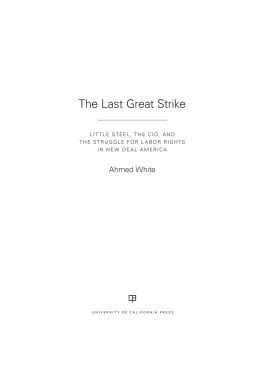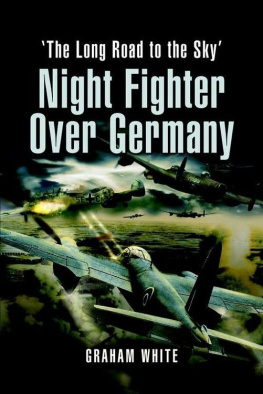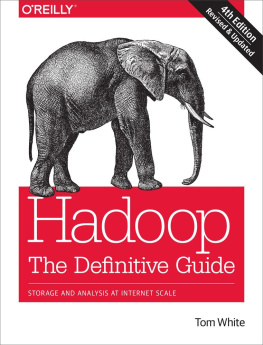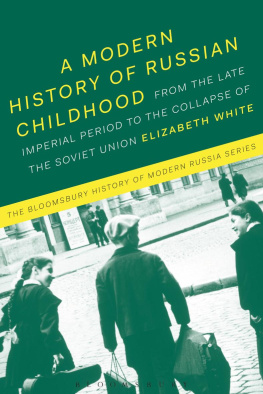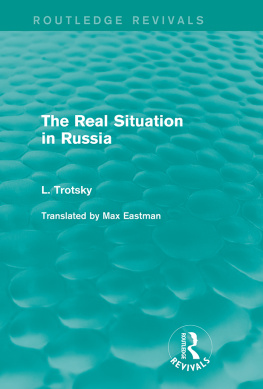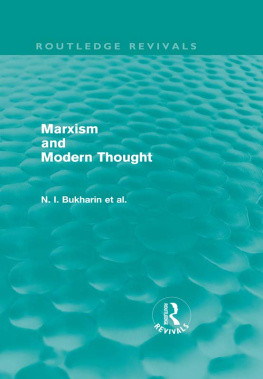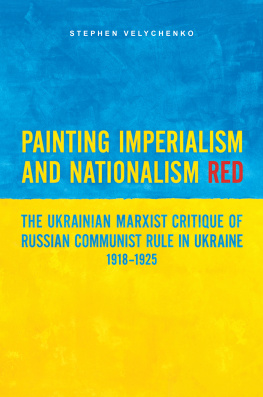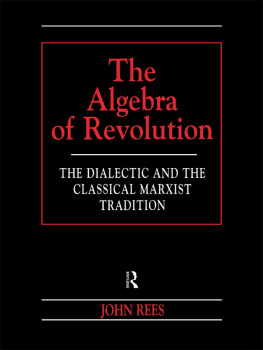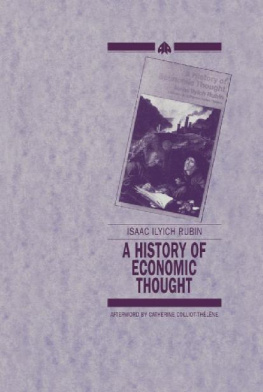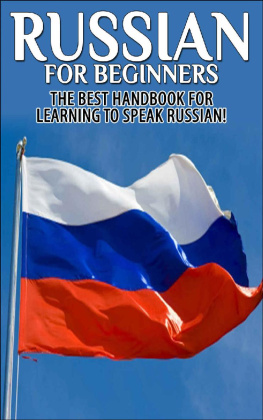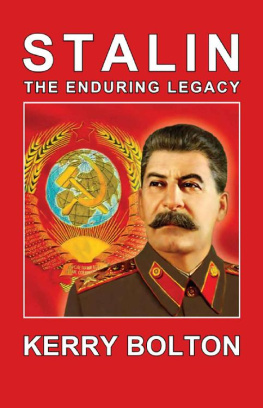Marx and Russia
THE BLOOMSBURY HISTORY OF MODERN RUSSIA SERIES
Series Editors:
Jonathan Smele (Queen Mary, University of London, UK) and Michael Melancon (Auburn University, USA)
This ambitious and unique series offers readers the latest views on aspects of the modern history of what has been and remains one of the most powerful and important countries in the world. In a series of books aimed at students, leading academics and experts from across the world portray, in a thematic manner, a broad variety of aspects of the Russian experience, over extended periods of time, from the reign of Peter the Great in the early eighteenth century to the Putin era at the beginning of the twenty-first.
Published:
Crime and Punishment in Russia: A Comparative History from Peter the Great to Vladimir Putin, Jonathan Daly
Peasants in Russia from Serfdom to Stalin: Accommodation, Survival, Resistance, Boris B. Gorshkov
Forthcoming:
Dissidents, migrs and Revolutionaries in Russia: Anti-State Activism in International Perspective, 18482015, Charlotte Alston
The History of the Russian Worker: Life and Change from Peter the Great to Vladimir Putin, Alice Pate
Law and the Russian State: Russias Legal Evolution from Peter the Great to Vladimir Putin, William Pomeranz
A Modern History of Russian Childhood: From Imperialism to the End of the Soviet Era, Elizabeth White

CONTENTS
The present work is the history of Marxist ideas in Russia. It was in Russia that Marxism had its greatest impact and produced some of the most well-known Marxist theoreticians: men like Plekhanov, Lenin, Bukharin and Trotsky. Tracing the development of Marxist ideas in Russia is one aspect of the subject of this book. The other is investigating Marxs own involvement with Russia, his intensive study of its economy and society in the last decade of his life. What motivated him to do this provides a unique insight into the nature and dynamics of his project. This work is therefore about a reciprocal relationship: Russians interest in Marx and Marxs interest in Russia.
Marx and Russia is a study in Russian intellectual history, in the history of ideas. However, since ideas do not exist in a vacuum, it is necessary to supply the political and economic background in which they originated and developed. For example, to understand the attraction that Russia of the 1870s had for Marx, one has to know the provisions of the 1861 peasant reform and how they were implemented. Similarly, the way in which the Bolsheviks came to power in 1917 explains a great deal about theoretical developments in the 1920s. Inter-party rivalries also had their part to play in determining how conceptions were crafted to serve particular political ends.
Existing works which treat the subject of Marxist ideas in Russia and the Soviet Union, such as Leszek Kolakowskis Main Currents of Marxism (Kolakowski 1992) and Gustav Wetters Dialectical Materialism (Wetter 1964), concentrate on Marxist philosophical ideas. However, in tracing the history of Marxist ideas in Russia, one discovers that these involve a broad range of subject areas. Sometimes the issues at stake are philosophical, sometimes economic, sometimes political, sometimes historiographical and so on. I have accordingly interpreted the term Marxist ideas broadly to include ideas and theories that in some way take their inspiration from Marx.
Another major difference between Kolakowskis book and the present study is that, whereas Kolakowski treats the various thinkers in isolation from one another, I present the development of Marxist ideas in Russia as a continuous narrative. This narrative approach has the advantage that it brings out the continuities between one thinker and another, and reveals the ways in which Marxs doctrines were interpreted in response to particular situations. Moreover, what may be important for a thinker viewed individually can be of lesser importance when that thinker is taken as a link in a historical narrative, and vice versa.
A feature of the narrative approach is that it brings into prominence key thinkers who have fallen into obscurity, or whose names have been deliberately omitted from the historical record. The present work reconstructs the parts played by Nikolai Sieber, Maxim Kovalevsky and Alexander Bogdanov in the development of Marxist ideas in Russia. Sieber was the first person to introduce Marxs ideas to the Russian reading public, and was the only commentator on Marxs economics whom Marx himself endorsed. Kovalevsky was a collaborator of Marxs, whose sociological writings Marx valued highly and Rosa Luxemburg incorporated into her seminal study The Accumulation of Capital. Bogdanov was the most original thinker of the Russian revolutionary era. His influence extended from 1897, when he published his textbook on Marxist political economy, to the industrialization debates of the 1920s. Rudolf Hilferding was influential in the history of Marxism in Russia, but his name was subsequently consigned to oblivion. His book Das Finanzkapital provides the key to the economic policies Lenin advocated in 1917.
Chronologically, I begin Marx and Russia at the start of the 1870s, when Marx began an intensive study of Russias economy and society, and take it up to 1938 when Stalin published his History of the Communist Party of the Soviet Union (Bolsheviks). A Short Course. I have chosen Stalins Short Course as a terminal point for two reasons. The first is that this book represents a culmination of what has gone before. It brings to a logical conclusion the party control on historical writing that had been instituted almost as soon as the Bolsheviks came to power. The book decided the outcome of a debate on Russian imperialism that had waged since 1925. But, most importantly, it incorporated and perpetuated the ideological mythology that had been generated by Plekhanov and Lenin, and now formed the Leninist ideology of the Stalin regime. The second reason is that the Short Course marks a major landmark in the history of Marxist thought in Russia. It presented Marxist thought and its history in Russia in the way Stalin wanted it to be perceived by the population of the Soviet Union. In this form it was an instrument of Stalins despotic rule, and had very little in it that remained of the conceptions that had inspired Marxs work.
In the main, the sources I have used are primary ones, the actual texts written by the thinkers discussed in the languages of the original. Where possible, I have cited English versions of the works used, so that the original texts can be consulted more easily. Often, however, I have altered the wording in order to standardize how various terms are translated and/or to bring the translation closer to the original.
I have not followed the convention of translating narodnichestvo as populism for reasons that emerge from the chapter on Plekhanov, and because the English word has connotations that are at variance with the Russian original. I have been sparing in my use of the terms Marxism and Marxist, as their current usage is imprecise, and where I do use them it is in the sense of Marxs ideas or pertaining to Marxs thinking; I do not attach any further qualification to the term whatsoever.
For his encouragement to take up the present project my thanks are due to Jonathan Smele. It would have been impossible to undertake it without the resources on Russian and Soviet studies in Glasgow University Library. Thanks must go to the subject librarian Kay Munro for her help in accessing materials, and to the staff of the Librarys Special Collections Department for making the unique holdings of the Trotsky Collection available to me. A debt of gratitude is due to John Lowrie, Ian Thatcher, Nijole White and Paul Zarembka, who have given me valuable assistance and support in my work on this book.




